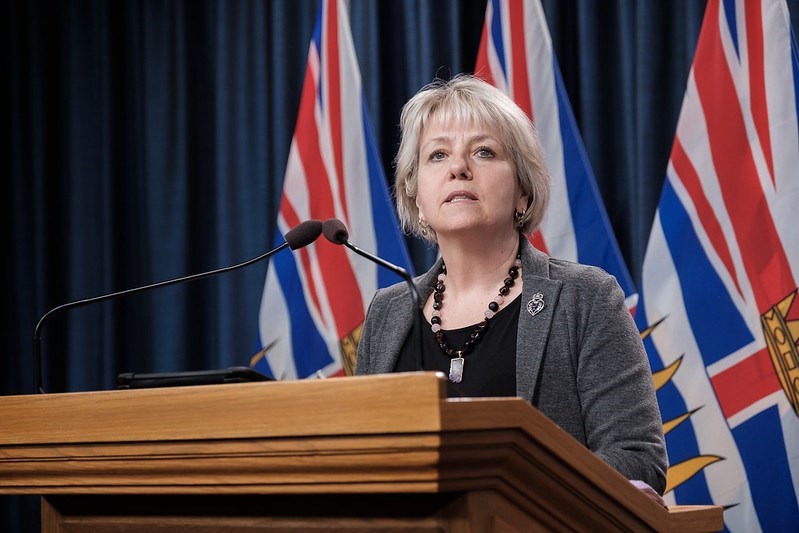The B.C. government's fears that COVID-19 variants could spread out of control have led it to launch new restrictions for a three-week period beginning March 30, and running until April 19, provincial health officer Bonnie Henry said on March 29.
Dining in restaurants will be banned, although restaurateurs will be able to provide dining on patios, delivery and pick-up service. Fitness club operations and dance studios will be restricted to one-on-one activities.
Whistler-Blackcomb will also be closed.
Henry said that retail stores will not be required to close because "the data does not show that we're seeing transmission in retail environments."
She explained that the new rules that she is putting in place are aimed at striking a balance.
BC Restaurant and Foodservices Association CEO Ian Tostenson told Glacier Media following the announcement that he is not happy with the announcement but he understands it.
"Restaurants haven't done anything wrong. ... They're trying to eliminate as many social interactions as they can," he said. "From the point of view of our responsibility in the community, and helping Dr. Henry and all get this curve under control, we stand with them 100 per cent. It's going to hurt because many people are just starting to get back on their feet."
Premier John Horgan said the moves were needed because, "During the past week, case counts have risen unacceptably high – in fact, higher today than at the worst point of the second wave, between November and January of this year. The percentages of tests coming back positive have gone up by 50 per cent, in some areas, and the number of variants in B.C. has also increased."
B.C. recorded a record 936 new COVID-19 infections on March 27, and followed that up with 805 infections detected on March 28, and 774 infections identified in the past 24 hours.
The B.1.1.7 variant first discovered in the U.K. remains the most widely spread variant, with 1,915 cases. There have also been 48 cases of the B.1.351 strain first discovered in South Africa.
The good news is that no one in B.C. has yet died from being infected by any COVID-19 variant of concern.



